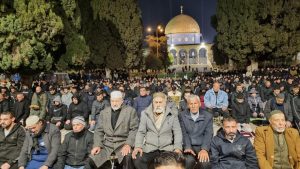Vienna, 7 Jumadil Awwal 1436/26 February 2015 (MINA) – Amid huge criticism from the Muslim community, the Austrian parliament has passed controversial reforms to the country’s century-old law on Islam, adding more restrictions on mosques, imams and funding of worshipping houses.
“What we want is to reduce the political influence and control from abroad,” Integration Minister Sebastian Kurz, told the BBC on Wednesday, February 25, On Islam quoted by Mi’raj Islamic News Agency (MINA) as reporting.
“We want to give Islam the chance to develop freely within our society and in line with our common European values,” he added, describing the reforms as a “milestone” for Austria.
The new Islamic law, introduced last October 2, has sparked huge criticism from the Muslim community for including many articles that viewed Muslims as a threat. Austria’s new Law on Islam will prohibit Muslim organizations receiving funding from abroad.
Also Read: Russia Defends Indonesia, Calls IOC “Hypocritical” Over Israel Visa Dispute
This will also affect imams who work in Austria but are financially supported by Turkey, banning them from renewing their visas once they expire. Currently, some 300 imams work in the country, including 65 Turkish scholars.
Moreover, mosques with less than 300 community members will be closed within a year and those with more than 300 will have to register as a legal entity.
The new “reforms” amend a 1912 law which made Islam an official religion in Austria, that has been widely held up as a model for Europe in dealing with Islam.
“We want an Islam with an Austrian character,” Integration Minister Sebastian Kurz had told public broadcaster ORF last October.
Also Read: IOC Suspends Indonesia’s Bid to Host Olympic Events After Visa Refusal for Israeli Athletes
Austrian Muslims are estimated at about half a million or nearly 6 percent of the European country’s 8 million population. In Vienna, Islam is the second-largest religious grouping, after Roman Catholicism.
Counterproductive
Many experts warned that the new law might create the radical voices it claimed to be fighting. “While they aim to prevent radicalism in Islam, this will backlash with rising instances of extremism,” Enes Bayraklı, a foreign affairs specialist and an academic at Istanbul’s Turkish-German University told Daily Sabah.
“The authority gap that will emerge after the law will abolish the concept of unity, which is the natural outcome of attachment to a certain administration, and the vacuum caused by the lack of authority will be filled in an unstable manner. That will lead to radicalism in Austria.”
Also Read: ICJ Rules Israel Must Facilitate Humanitarian Aid to Gaza Under Geneva Convention
Bayraklı claimed that the bill sets a bad example for Europe, adding that taking precautions against Muslim extremism has no reasonable grounds since Austria has not been the victim of any terrorist activities. “A paranoid fear is being instilled in society. Muslims in Austria have never engaged in terrorism or extremism in Austria thus far,” Bayraklı said.
“Taking into consideration the peaceful atmosphere in Austria, the government’s purpose seems to be nothing but an engineering and social manipulation project.”
Turkey’s Presidency of Religious Affairs (DİB) head Mehmet Görmez has also condemned the draft bill. “Austria will go back 100 years in freedom with its Islam bill,” Görmez said. (T/P011/R03)
Mi’raj Islamic News Agenc y (MINA)
Also Read: Israeli Fans Riot in Tel Aviv After UK Ban

















![French President Emmanuel Macron in Berlin, Germany on March 15, 2024 [Halil Sağırkaya – Anadolu Agency]](https://en.minanews.net/wp-content/uploads/2024/10/Screenshot_2024-10-22-20-57-45-59_40deb401b9ffe8e1df2f1cc5ba480b12-300x193.jpg)


















 Mina Indonesia
Mina Indonesia Mina Arabic
Mina Arabic